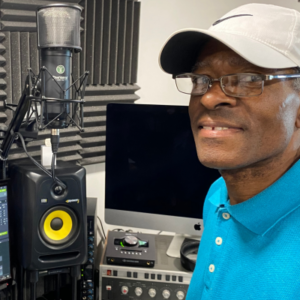Marvin Gaye & Tammi Terrell were now established as one of the top acts at Motown. The song-writing team of Valerie Simpson and Nickolas Ashford seemed to be able to tune in to exactly the right wavelength to create songs that Gaye and Terrell could turn into hits. Tamla released three singles sung by the duo during 1968: “Ain’t Nothing Like The Real Thing” in March, “You’re All I Need To Get By” in July, and finally “Keep On Lovin’ Me Honey”, all written and produced by Ashford and Simpson.
The first two both topped the Billboard R&B Singles Chart, with the third reaching number eleven. All three also entered the Billboard Hot 100 Singles Chart, reaching numbers eight, seven and twenty-four, respectively. In the UK, the first two singles also sold well, reaching numbers thirty-four and nineteen respectively on the Official UK Pop Singles Chart. “You’re All I Need To Get By” spent a total of nineteen weeks on the chart and has continued to be popular. In October 2023, the single was awarded silver certification by the BPI for sales of over 200,000 copies fifty-five years after its original release.

“You’re All I Need To Get By” is cleverly arranged, starting gently with bass and backing singers. Marvin Gaye establishes the romantic feeling with his opening lines, which are then answered by Tammi Terrell, before the two different vocal lines are woven in a duet that builds into a powerful climax. By this point in the song, the bass has been joined by drums, vibraphone and strings. Then, suddenly, the temperature is lowered and the pattern is repeated. The song is harmonically and rhythmically interesting all the way through thanks to the pulsating beat set by the Funk Brothers, highlighted by Jack Ashford (percussion) playing in unison with the drums. The key to the song’s success is the wonderful interplay of the two voices and the heartfelt emotional chemistry between the two singers.

“Keep On Lovin’ Me Honey” is a more up-tempo track, with a simpler arrangement that highlights piano and tambourine. There are no backing singers, but the beat is infectious.
In August, all three songs were also included on the album “You’re All I Need”, which featured four Ashford/Simpson compositions and six songs by Harvey Fuqua and Johnny Bristol, with co-writers Vernon Bullock (two songs), Gladys Knight (one song) and Beatrice Verdi (one song). The two remaining tracks were written by Bristol and Jackie Beavers, and Robert Gordy, Thomas Kemp and Marvin Gaye. The strong backing vocals were provided by Ashford & Simpson with contributions from Motown groups the Andantes, the Originals and the Spinners. Most of the tracks were recorded prior to 1968, with six of the Fuqua/Bristol songs dating back to 1965 or 1966, recorded as solo performances by Terrell. Marvin Gaye overdubbed his half of the vocal much later. It was a method that seemed to work well!

The album sold strongly in the UK, reaching number four on the Record Mirror UK R&B Albums Chart and peaking at number sixty on the Billboard 200 Albums Chart. It also spent five weeks on the Billboard R&B Albums Chart, peaking at number six week-ending 19th October 1968.
Thanks to the outstanding songwriting and production skills of Ashford and Simpson, Gaye and Terrell had established themselves by the end of 1968 as the very best male/female duo at Motown and beyond. They had a chemistry that just worked. For Marvin Gaye it was a miraculous year during which everything came together. His success gave him power for the future. For Tammi Terrell, that was not to be.
Tammi Terrell had entered Graduate Hospital in Philadelphia in January 1968. She had collapsed on stage during a performance with Marvin Gaye in October of the previous year, suffering from a brain tumour. When Terrell recovered from the subsequent operation, she insisted that she wanted to return to Studio A.
She could only manage limited sessions, however, and Motown’s focus was on her duets with Marvin Gaye (See above). However, just in time for Christmas, Motown issued her version of the Isley Brothers’ hit “This Old Heart Of Mine” with “Just Too Much To Hope For” on the B-side. Both tracks were drawn from the album “Irresistible Tammi Terrell”, which would be released in early 1969. The A-side, written by Holland, Dozier, Holland with Sylvia Moy and produced by Brian Holland and Lamont Dozier before their departure must have been recorded well before the release date. Sadly, Terrell’s voice gets lost in the mix. Nevertheless, the single entered the charts, reaching number sixty-seven on the Billboard Hot 100 Singles Chart and number thirty-one on the Billboard R&B Singles Chart.
By the end of the year Terrell was again in poor health, unable to undertake any live shows.

















